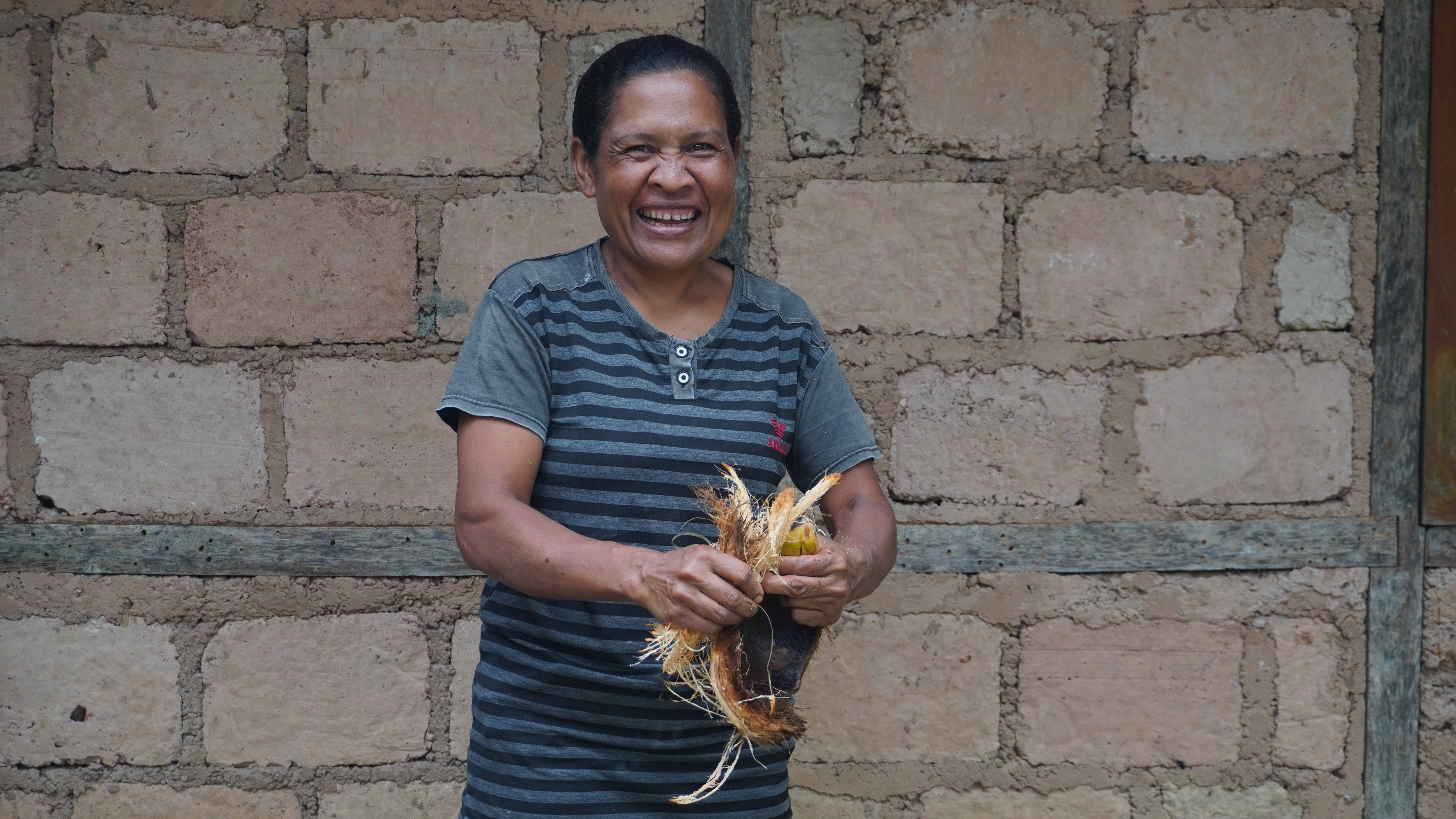
Mama Vero preparing coconut husks as organic mulch to protect the soil.
Although organic farming is not a new concept, not all farmers are willing to embrace it. Compared to conventional or non-organic farming, organic farming requires more effort, such as collecting natural materials and processing them into organic fertilizers and pesticides.
For Mama Vero, a female farmer from Taiftob Village, North Mollo, South Central Timor Regency, organic farming is more than just work, it’s an act of love. While many other farmers consider conventional farming a safer choice, she remains committed to the traditional farming methods passed down from her parents.
“I use organic materials in farming because that’s what my parents taught me. They were able to farm and withstand various risks on their land without using chemicals. That’s why I believe there are many ways to run a successful farm organically.”
For Mama Vero, organic farming has proven effective from generation to generation. This system is not only environmentally friendly but also more resilient, as it involves cultivating a variety of crops. If one crop fails, there are others to rely on.
In contrast, conventional farming often depends heavily on chemical fertilizers and pesticides. Ironically, some farmers are reluctant to consume their own produce out of concern for the effects of chemicals, choosing instead to sell everything for profit.
“I continue to farm organically because my family and I consume what we grow. I also think about the people who buy our produce. I want them to gain health benefits from it, not fall sick.”
Making organic fertilizers and pesticides does take extra effort, but the materials can easily be found in nature, from neem leaves, lemongrass, papaya, and tobacco to livestock manure. This approach is not only healthier but also helps reduce production costs, allowing farmers to remain profitable. A simple principle of economics: efficiency.
Beyond using what’s available around her, Mama Vero also shares her knowledge with other farmers, helping them become self-reliant in making organic fertilizers and pesticides. For her, organic farming is not only about producing healthy food, it’s also a responsibility to protect the environment. Farming, unlike other forms of production, depends deeply on nature’s condition.
“My livelihood depends on nature, but so does everyone’s life. Fertile soil, clean water, and fresh air are God’s gifts that must be preserved. By practicing organic farming, we also contribute to the sustainability of our environment.”
What Mama Vero practices reflects the balance of People, Profit, and Planet: protecting the health of farmers and consumers, reducing costs while maintaining profitability, and safeguarding the environment and the Earth we live on. It’s a long-term investment for future generations, ensuring they too can benefit from a thriving and sustainable natural world.
From Mama Vero, we learn that protecting our environment can start from something simple: a love for organic farming. Because when something is done with love, effort no longer feels like a burden, but a path toward a greater purpose.


